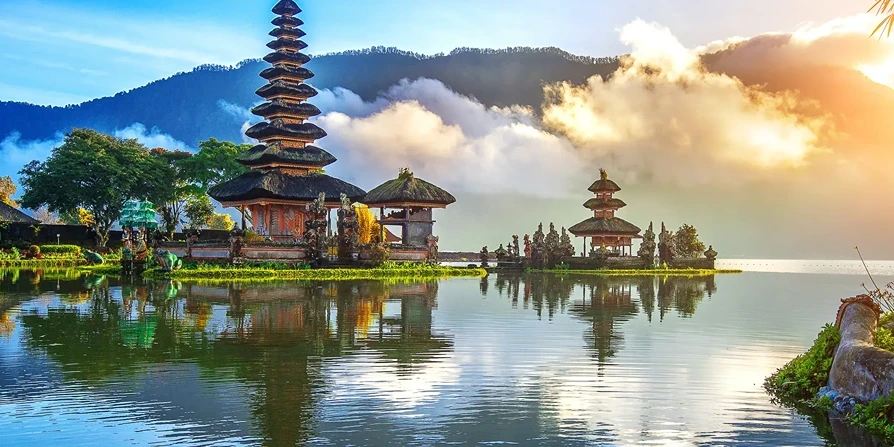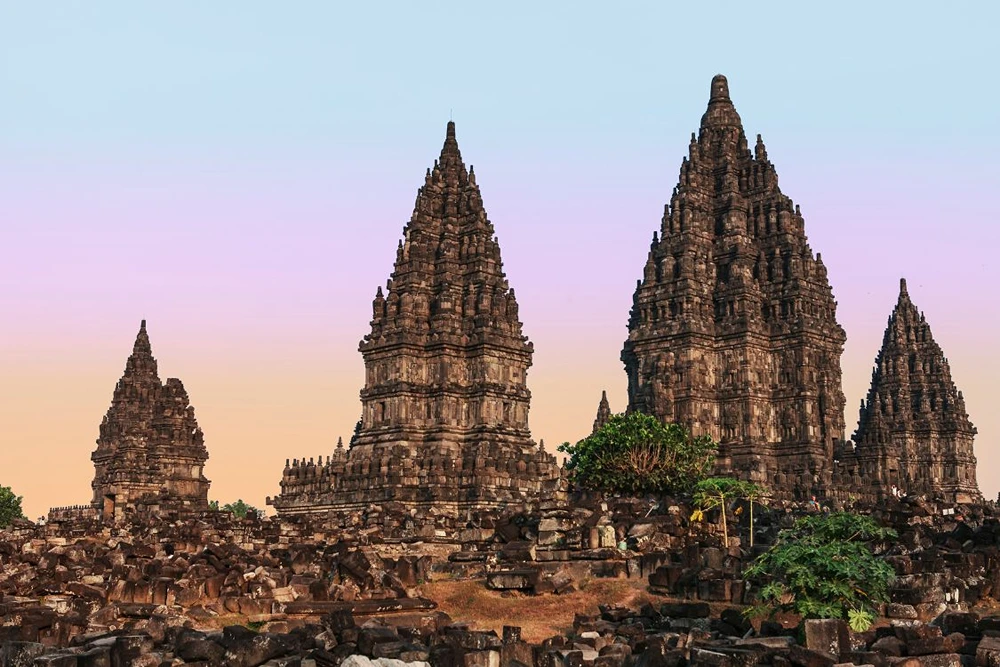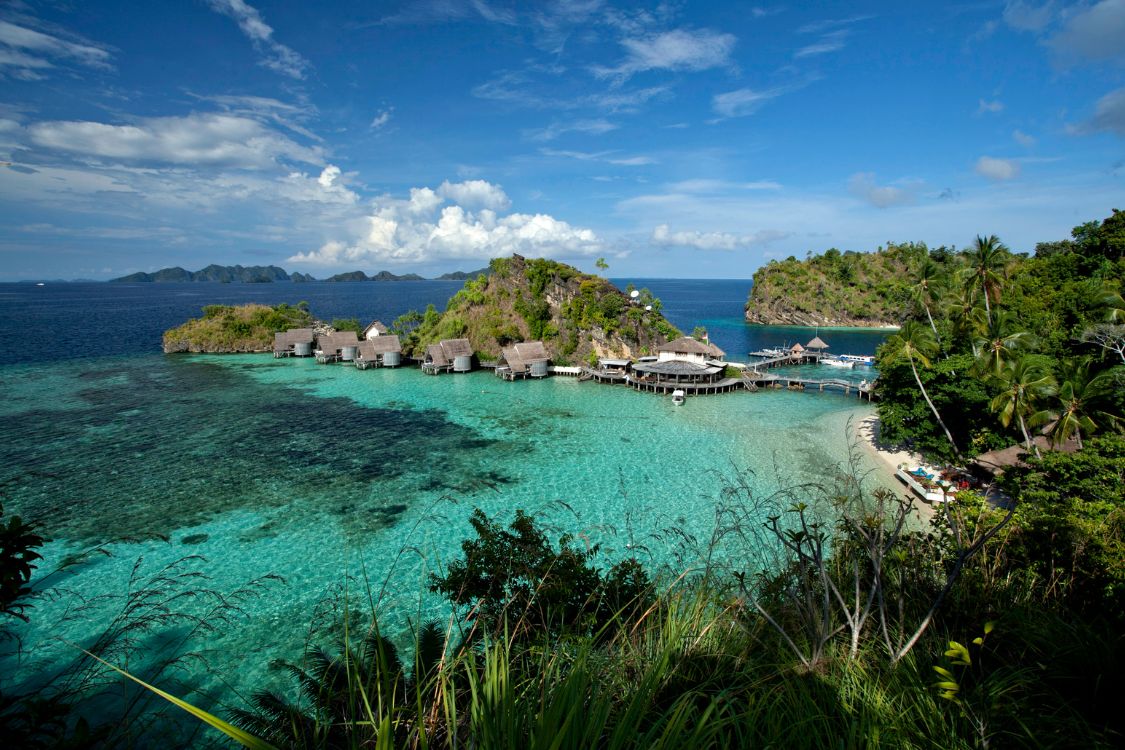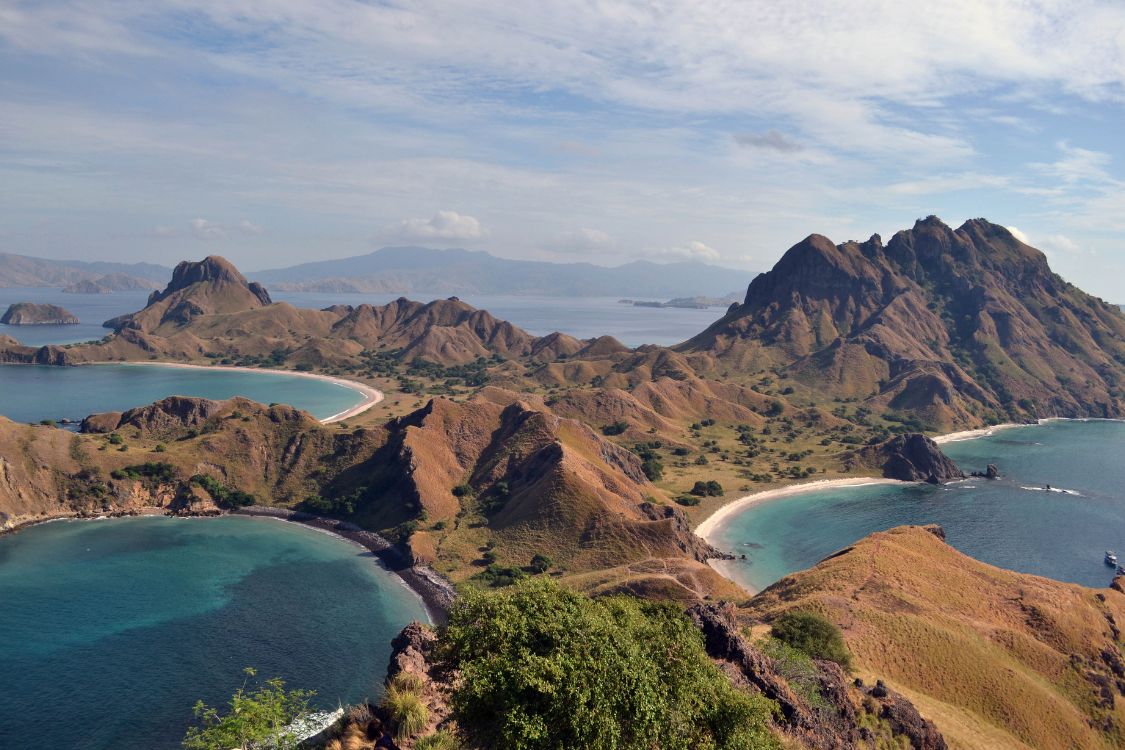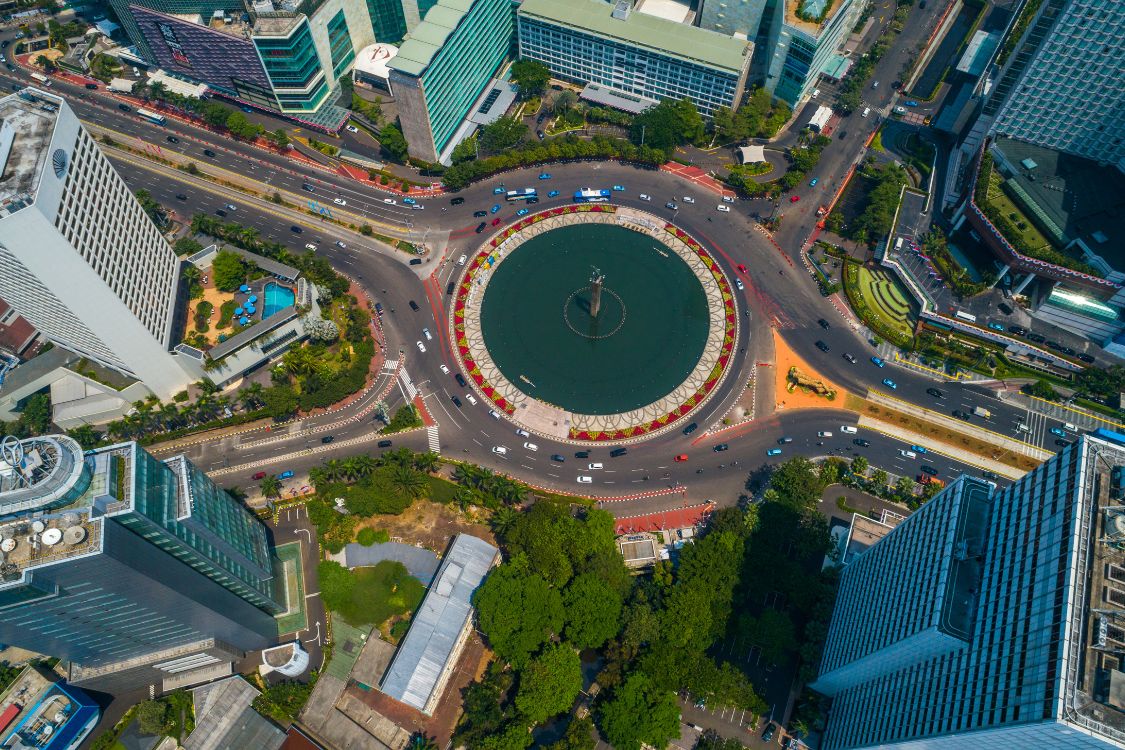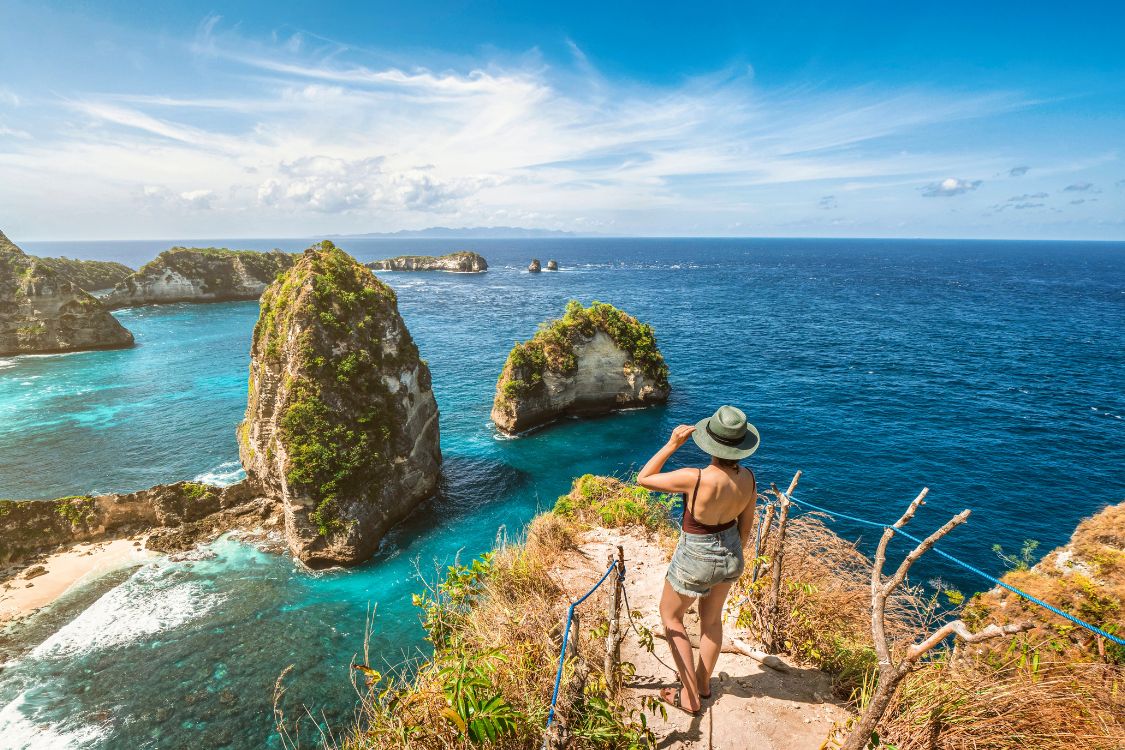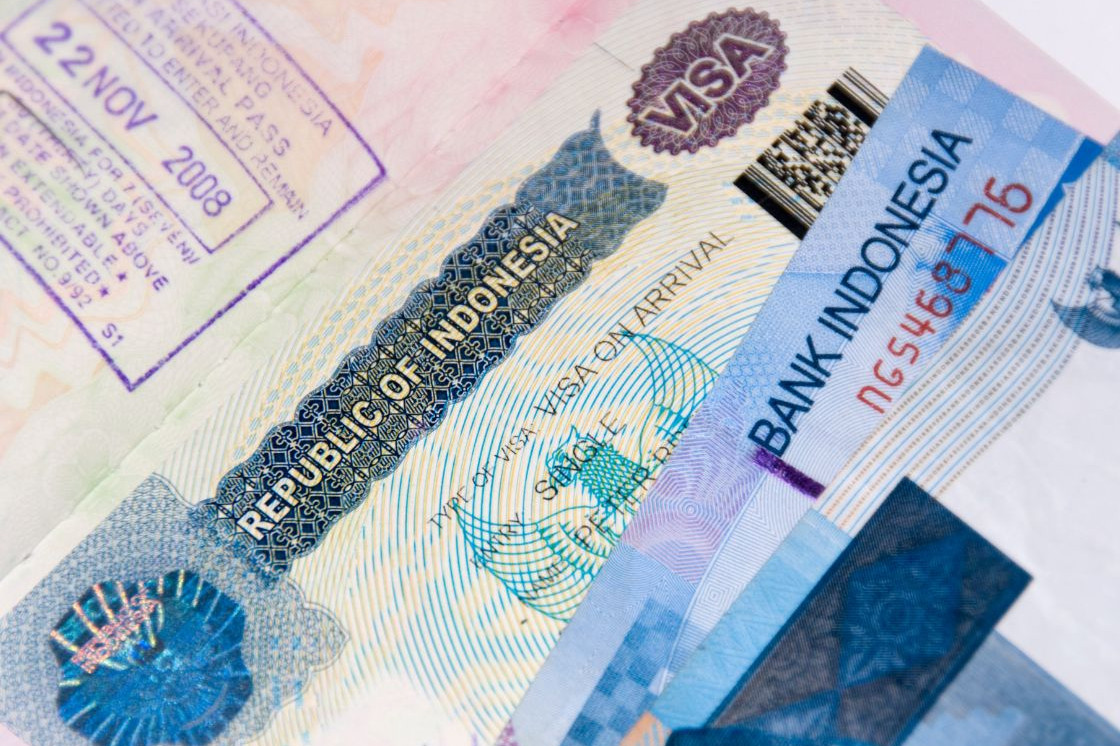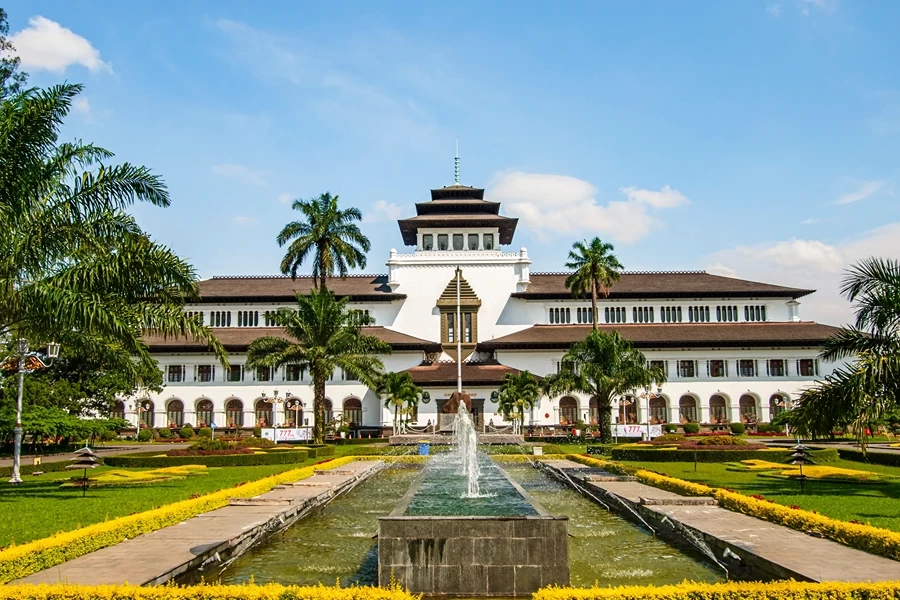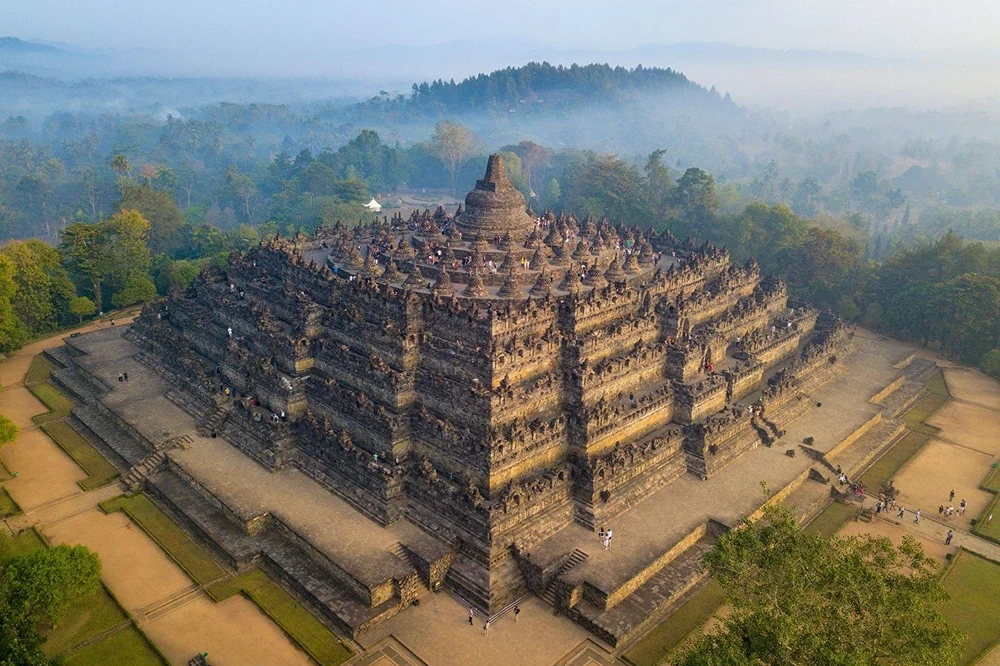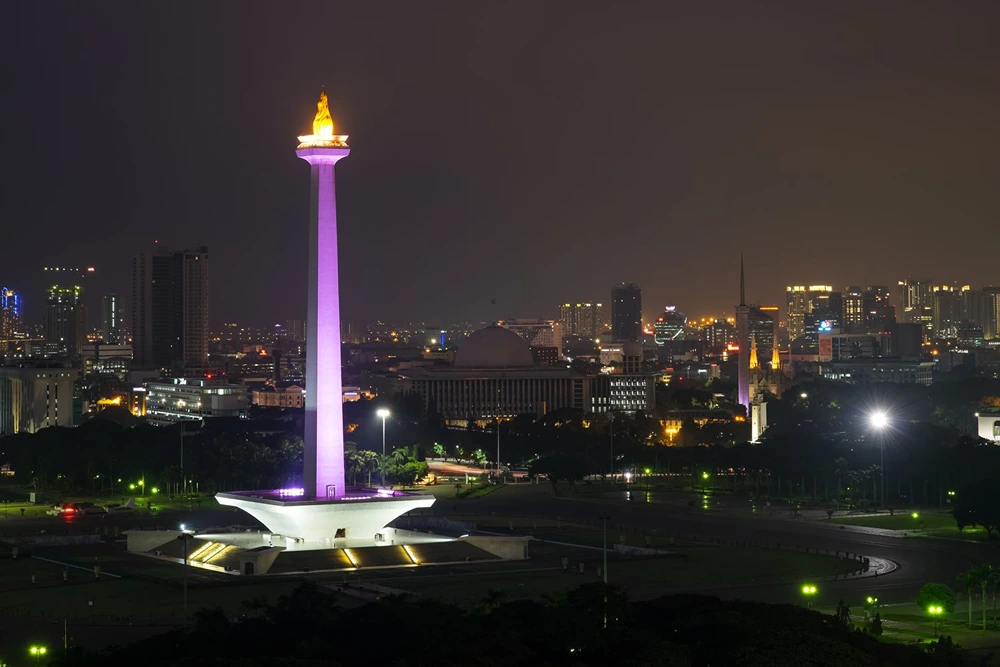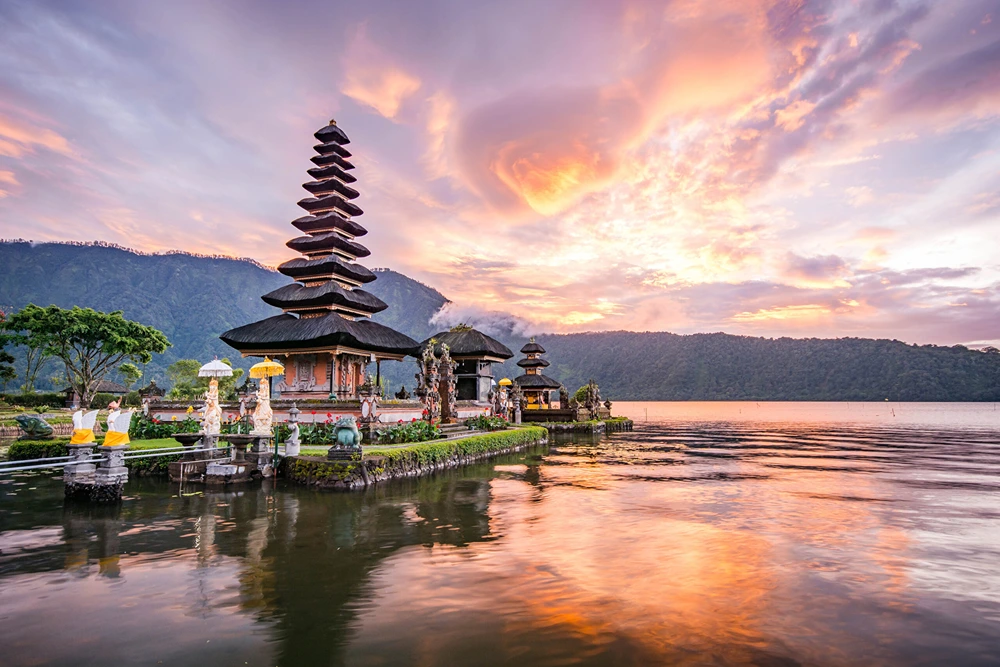Key highlights of Indonesia:
- World’s largest archipelagic state
- Rich biodiversity both on land and in its waters
- Cultural diversity with over 300 ethnic groups
- Ancient temples and historical sites
- Renowned surfing and diving destinations
- Unique and flavorful cuisine
Travel Resources
Before embarking on your Indonesian adventure, consider these essential resources:
- Flights: Find affordable flights to Indonesia to start your journey.
- Insurance: Ensure a worry-free visit with comprehensive travel insurance.
- Car Rental: Rent a car in Indonesia for exploring beyond the main tourist areas.
- Tours: Discover Indonesia’s hidden gems with our curated selection of tours.
- Packing List: Don’t forget essentials like lightweight clothing, reef-safe sunscreen, and a universal power adapter!
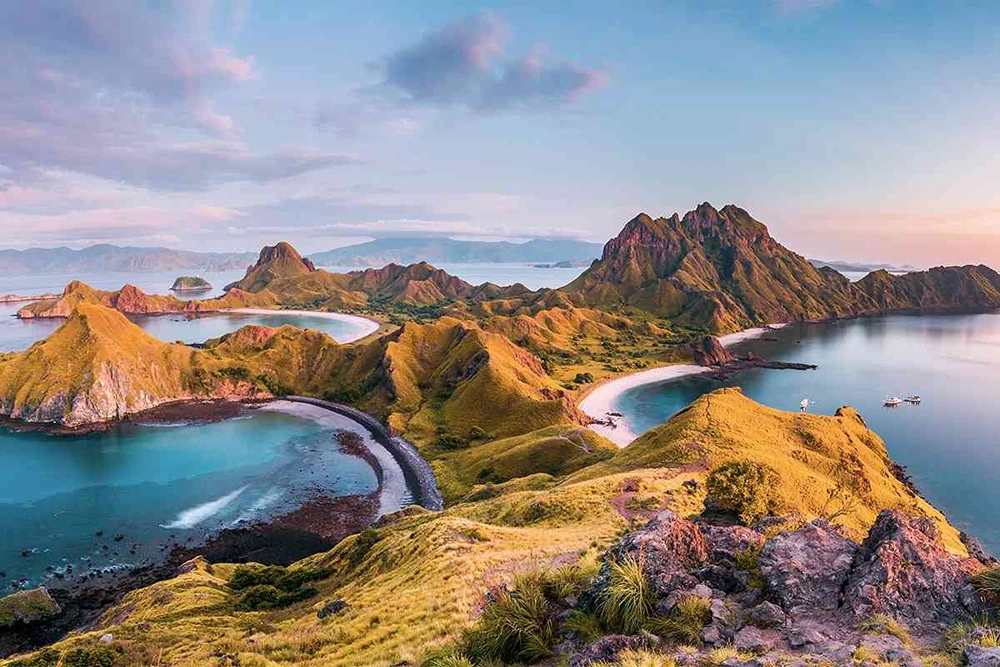
Some History First
Indonesia’s rich history spans millennia, shaping the diverse nation we see today:
- Prehistoric times: Evidence of early human settlements dating back over 1 million years
- 3rd century BCE – 7th century CE: Rise of Hindu-Buddhist kingdoms
- 13th – 16th centuries: Spread of Islam across the archipelago
- 17th – 20th centuries: Dutch colonial rule (Dutch East Indies)
- 1945: Declaration of Independence
- 1965-1998: Suharto’s “New Order” regime
- 1999-present: Era of Reformasi (reform) and democratic consolidation
Notable historical events:
- Majapahit Empire (13th-16th centuries)
- Arrival of European traders (16th century)
- Java War (1825-1830)
- Indonesian National Revolution (1945-1949)
- Asian Financial Crisis and fall of Suharto (1997-1998)
Indonesia Today
Modern Indonesia is a rapidly developing nation facing both opportunities and challenges:
- Population: Over 270 million (world’s 4th most populous country)
- Economy: Largest economy in Southeast Asia, member of G20
- Politics: World’s third-largest democracy
- Technology: Growing digital economy and startup ecosystem
- Environment: Efforts to balance development with conservation
Key sectors:
- Agriculture and natural resources
- Manufacturing and industry
- Tourism and hospitality
- Digital and creative industries
Is Indonesia Safe?
Indonesia is generally safe for tourists, but it’s important to exercise common sense and stay informed about local conditions. Here are some safety considerations:
- Be cautious in crowded areas and watch out for petty theft
- Respect local customs and dress modestly, especially in conservative areas
- Natural disasters: Be aware of potential risks (earthquakes, tsunamis, volcanic eruptions) and follow local guidance
- Use reputable transportation services and be cautious when using motorbikes
- Health: Take precautions against mosquito-borne illnesses and drink only bottled water
- Emergency numbers: 110 for police, 113 for fire, 118 for ambulance
Where is Indonesia?
Indonesia occupies a strategic location in Southeast Asia:
- Stretches along the equator between the Indian and Pacific Oceans
- Coordinates: 5°S 120°E
- Neighboring countries:
- Papua New Guinea to the east
- East Timor to the southeast
- Malaysia to the north (on Borneo)
- Major islands: Sumatra, Java, Kalimantan (Borneo), Sulawesi, and Papua
Fun fact: Indonesia is the world’s largest archipelagic state, with islands spanning a distance equivalent to that between London and Moscow.
Latest Articles
From The Area
What is the Best Time to Visit Indonesia?
Indonesia’s climate varies across the archipelago, but generally, it experiences two seasons:
- Dry season (May to September):Best time for most travelers
- Ideal for beach destinations and outdoor activities
- Peak tourist season, especially in July and August
- Wet season (October to April):
- Higher humidity and daily rainfall
- Good for lush landscapes and fewer crowds
- Some areas may have limited accessibility
Best times to visit popular destinations:
- Bali: April to October
- Java: April to October
- Komodo National Park: April to December
- Raja Ampat: October to April (for diving)
Tip: Consider shoulder seasons (May-June and September-October) for a balance between good weather and smaller crowds.
How to Get to Indonesia & Around
Indonesia offers various transportation options for both international arrivals and domestic travel:
Getting to Indonesia:
- By air: Major international airports include:
- Soekarno-Hatta International Airport (Jakarta)
- Ngurah Rai International Airport (Bali)
- Juanda International Airport (Surabaya)
- By sea: Some ferries connect Indonesia with Malaysia and Singapore
Getting around Indonesia:
- Domestic flights: Essential for covering long distances between islands
- Ferries and boats: Connect many islands, ranging from large ferries to small local boats
- Trains: Available on Java and parts of Sumatra, including some scenic routes
- Buses: Extensive network, especially on major islands
- Taxis and ride-hailing: Apps like Gojek and Grab are popular in urban areas
- Motorbike rentals: Common on many islands, but be cautious and ensure you have proper insurance
Pro tip: For flexibility in less touristy areas, consider renting a car with a driver who knows local roads and customs.
Things to Do in Indonesia
Indonesia offers an incredible array of activities and attractions:
- Explore Bali: Visit ancient temples, relax on beautiful beaches, and experience the unique culture
- Borobudur and Prambanan temples: Discover these UNESCO World Heritage sites near Yogyakarta
- Komodo National Park: See the famous Komodo dragons and enjoy world-class diving
- Orangutan spotting in Borneo: Visit rehabilitation centers or take a jungle trek
- Tana Toraja: Experience unique funeral rituals and traditional architecture in Sulawesi
- Mount Bromo: Watch the sunrise over this iconic active volcano in East Java
- Raja Ampat: Dive or snorkel in one of the world’s most biodiverse marine areas
- Lake Toba: Relax at the world’s largest volcanic lake in Sumatra
- Jakarta: Explore the bustling capital city’s museums, malls, and diverse neighborhoods
- Gili Islands: Enjoy laid-back island life and beautiful beaches near Lombok
Don’t miss: Taking a traditional Indonesian cooking class to learn about local ingredients and techniques.
Where To Stay In Indonesia
Indonesia offers a wide range of accommodation options to suit every budget and preference:
Luxury:
- AYANA Resort and Spa (Bali)
- Nihi Sumba (Sumba Island)
- Mandapa, a Ritz-Carlton Reserve (Bali)
Mid-range:
- Greenhost Boutique Hotel (Yogyakarta)
- Coconut Garden Beach Resort (Lombok)
- Aston Anyer Beach Hotel (West Java)
Budget:
- Bread & Jam Hostel (Bali)
- Six Degrees (Jakarta)
- Wonderloft Hostel (Yogyakarta)
Unique stays:
- Bambu Indah (eco-luxury resort in Bali)
- Labuan Bajo Treehouses (Flores)
- Wakatobi Dive Resort (Southeast Sulawesi)
Tip: In popular areas, book accommodations well in advance, especially during peak seasons and local holidays.
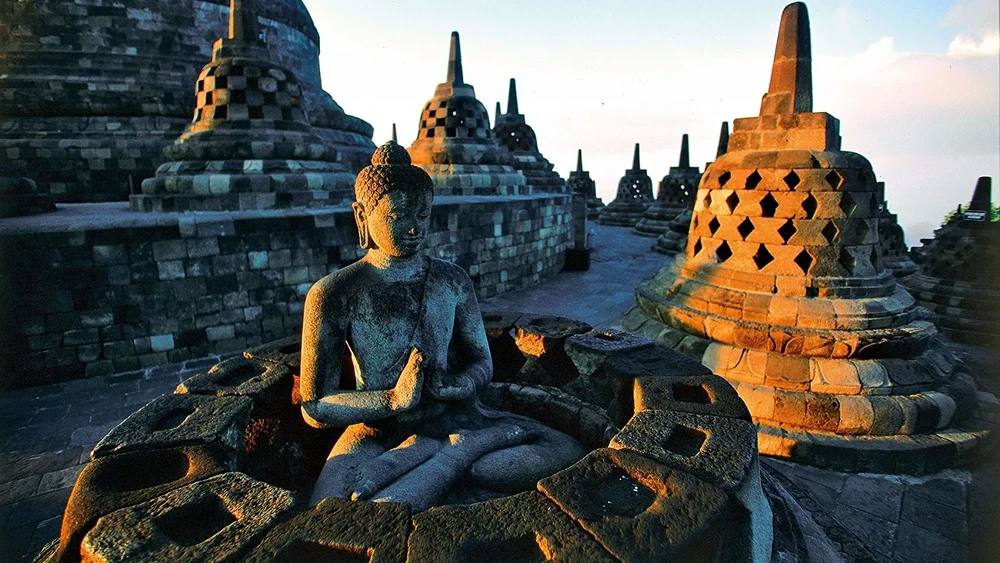
What To Eat In Indonesia
Indonesian cuisine is diverse and flavorful, reflecting the country’s cultural diversity:
Must-try dishes:
- Nasi Goreng: Indonesian fried rice, often served with a fried egg
- Rendang: Slow-cooked spicy meat dish, originally from Sumatra
- Satay: Skewered and grilled meat served with peanut sauce
- Gado-gado: Vegetable salad with peanut sauce dressing
- Soto: Traditional Indonesian soup with regional variations
Where to eat:
- Warungs: Small family-owned eateries offering authentic local food
- Night markets: Try a variety of street food and local specialties
- Padang restaurants: Serve cuisine from West Sumatra, known for its rich flavors
- Modern Indonesian restaurants: For contemporary takes on traditional dishes
Pro tip: Be adventurous but cautious with street food. Look for busy stalls with high turnover for the freshest options.
Entry & Exit Requirements
Visitors to Indonesia must comply with the country’s entry regulations:
- Visa: Requirements vary based on nationality
- Many countries are eligible for Visa-free entry for stays up to 30 days
- Visa-on-Arrival available for some nationalities (extendable to 60 days)
- E-Visa option available for longer stays or business purposes
- Passport: Must be valid for at least 6 months beyond your planned stay
- Health: Proof of COVID-19 vaccination may be required (check current regulations)
- Customs: Be aware of restricted and prohibited items
Important: Always check the most up-to-date information from official sources before your trip, as requirements may change.
What To Pack For Your Trip
Ensure a comfortable and enjoyable stay in Indonesia by packing these essentials:
- Clothing:
- Lightweight, breathable fabrics
- Modest attire for visiting temples and conservative areas
- Rain jacket or poncho
- Footwear:
- Comfortable walking shoes
- Flip-flops or sandals
- Water shoes for rocky beaches
- Sun protection: Hat, sunglasses, and reef-safe sunscreen
- Insect repellent
- Travel adapter (Indonesia uses 220V, 50Hz with Type C and F plugs)
- Reusable water bottle with filter
- Basic first-aid kit and any necessary medications
- Dry bag for boat trips and beach days
- Modest cover-up for visiting religious sites
Pro tip: Pack light and leave room for souvenirs. Many items can be purchased locally if needed.
Remember to respect local customs and dress modestly, especially when visiting religious sites or rural areas. Indonesia’s diversity means customs may vary from island to island, so research specific destinations before your visit.
FAQs
Check the visa policy based on your nationality. Some countries are eligible for visa-free entry.
It’s recommended to drink bottled or boiled water to avoid stomach upset.
Don’t miss Bali, Java, Sumatra, and the remote islands of Raja Ampat and Komodo.


